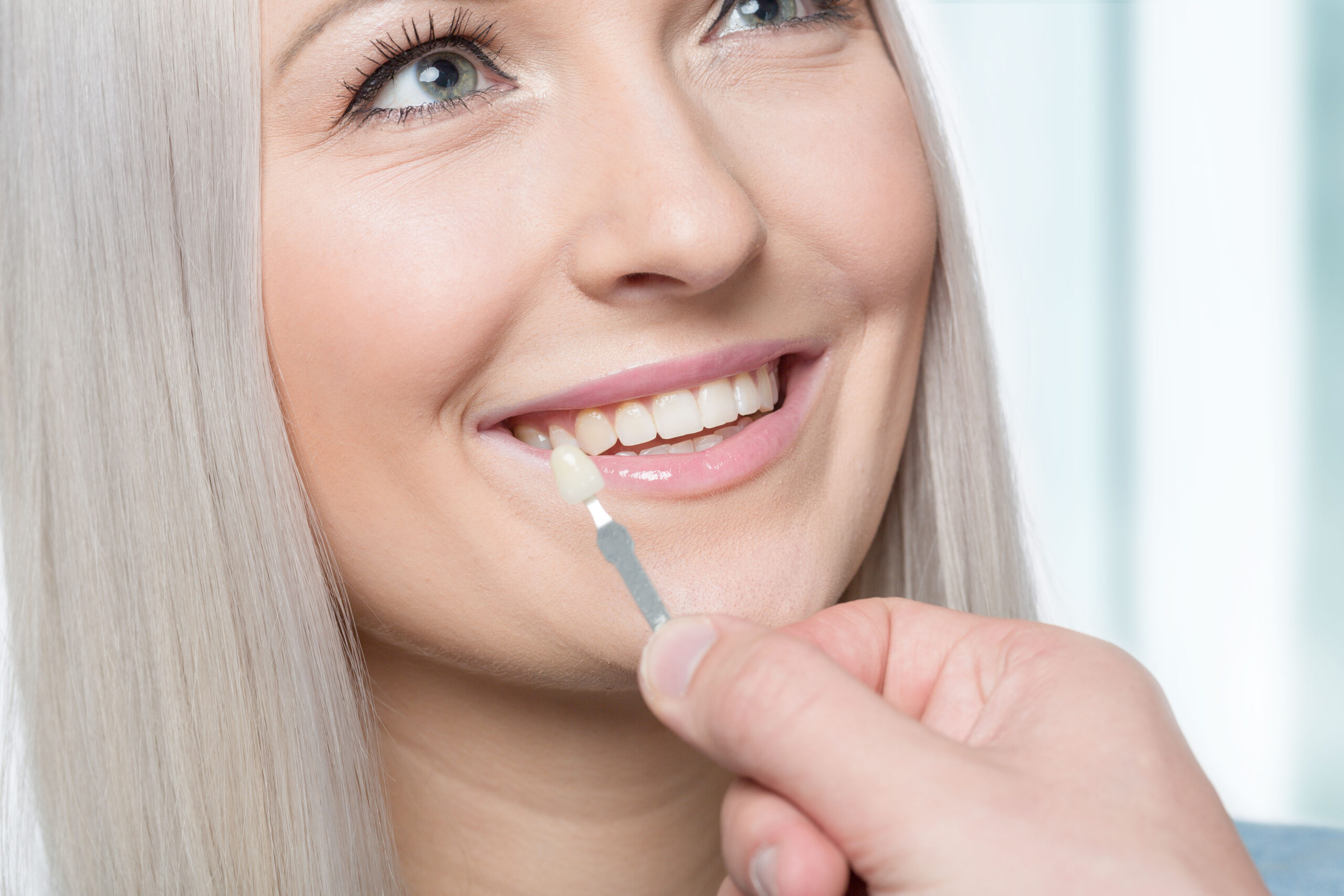In cosmetic dentistry, the quest for a radiant and flawless smile often leads individuals to explore transformative procedures, with dental veneers being a popular choice.
However, as crafting permanent veneers takes time, dental professionals often turn to a temporary solution in the form of temporary veneers. These provisional coverings serve as a crucial intermediary step toward an enhanced smile, offering practical and aesthetic advantages.
This article will discuss everything you need to know about temporary teeth veneers and why you should opt for them.

Temporary veneers are dental coverings crafted to serve as a placeholder for the final, custom-made veneers. Dental professionals meticulously design these thin, tooth-colored shells to offer a temporary aesthetic enhancement while permanent veneers are being fabricated.
They are made of durable materials and custom-fitted to the patient’s teeth, providing a preview of the ultimate smile transformation.
Are you wondering why to get temporary veneers as an alternative before your ultimate veneers are ready? Fortunately, we have compiled some underlying reasons that will compel you to go for temporary ones before the permanent placement.
Temporary veneers act as a protective barrier for prepared teeth. They shield them from potential damage or sensitivity during the interval between the initial tooth preparation and the placement of permanent veneers. It ensures that the teeth remain structurally sound and minimizes discomfort during transition.
By providing an interim aesthetic solution, temporary veneers allow individuals to maintain a visually cohesive smile throughout the veneer placement process. This continuity is essential for those seeking improvements to enhance their appearance even before the permanent veneers are in place.
Temporary dental veneers not only contribute to the visual appeal but also play a functional role by preserving normal biting and chewing capabilities. It’s crucial for individuals who want to continue their daily activities without compromising their ability to eat certain things while awaiting the final, permanent veneers.
These provisional coverings offer a sneak peek into the potential outcome of the smile transformation. Patients can experience the look and feel of veneers, allowing adjustments and fine-tuning before the final, customized veneers are crafted. This preview ensures that the ultimate aesthetic goals are met.
If you plan to get temporary veneers and are unsure how to care for them, below are some valuable tips.
Over time, staining substances may cause the veneers to become discolored. Your veneers’ look can become less appealing as a result. You should rinsе with warm watеr after consuming acidic foods or bеvеragеs, such as coffее, tеa, cola, and fruit juicеs, to prеvеnt stains. Additionally, maintain thе clеanlinеss of your mouth by flossing once a day and brushing at least twice a day using a toothbrush that has soft bristlеs.
Temporary veneers typically last 1-3 weeks, offering a short-term solution during the transitional period before the placement of permanent veneers. The duration of their effectiveness depends on various factors, including the quality of the materials used, individual care practices, and patient habits.
It’s essential to recognize that these veneers are not designed for the long term. Extended use can compromise their structural integrity, leading to various dental damage. Also, their removal when transitioning to permanent veneers may become more challenging if not replaced timely. It could result in additional time and potential discomfort during the removal process.
Choosing the right foods to consume with temporary veneers is crucial to maintain their integrity and prevent unnecessary stress on dental work. Below, we have mentioned some preferred options.
Opt for a diet rich in soft and non-sticky foods. It includes items like yogurt, smoothies, mashed potatoes, and soups. These choices are gentle on temporary veneers, minimizing the risk of damage or displacement.
Incorporate cooked vegetables and soft fruits into your meals. Steamed vegetables, well-cooked carrots, and fruits like bananas and avocados provide nutrition without requiring excessive biting force.
Choose proteins that are easy to chew. This includes tender meats, fish, and eggs. Avoid overly tough or fibrous meat that may place undue stress on the temporary veneers.
Dairy products like yogurt and soft cheeses are not only gentle on temporary veneers but also contribute to oral health. The calcium in dairy can strengthen teeth and provide essential nutrients.
Soft grains and pasta dishes are generally safe to consume with temporary veneers. Opt for well-cooked pasta, rice, and other grains to minimize the impact on the veneers.
Stick to beverages that are not overly acidic or staining. Water, herbal teas, and milk are good choices. Avoid excessive consumption of coffee, red wine, and acidic juices to prevent potential staining and damage to the veneers.
Nut butter, including peanut butter or almond butter, provides a protein-rich and soft option. Spread them on soft bread or crackers for a satisfying and veneer-friendly snack.
Overall, temporary veneers are the perfect solution for a revitalized smile. They not only hide your dental imperfections but also protect your teeth after enamel reduction.
Are you looking for veneer experts in NJ? Hesed Dental is the best spot to consult for your next treatment. We have the best porcelain veneers in NJ, which can be customized as per your needs and concerns.
Get in touch and take a step towards a dream smile.

Hesed Dental 543 Gorge Road Cliffside Park, NJ 07010
201 941 8877